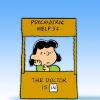-
Posts
472 -
Joined
-
Last visited
-
Days Won
3
Reputation Activity
-
 _kita got a reaction from lwalker2009 in GRE scores too low for Clinical Psychology?
_kita got a reaction from lwalker2009 in GRE scores too low for Clinical Psychology?
I really dislike when I hear people way that 'it's not that tough.' There are many of us out there that follow systematic and thorough study plans, take and retake the test, and still end up below the 160 mark. Not for lack of intelligence, just for some reason it does not click. In that case, personalized tutoring (upward of a grand) can be best solution.. I'm not saying that lwalker is in that boat, but it's actually disheartening to hear people say "it's not tough, come on, give it a try." That being said, if you can figure out your weakpoints and find a way to productively study for them, do so. Unless the school says otherwise, consider them finite cut offs.
I suggest calling schools to find out how flexible they are, or adding in schools that say something along the lines :" Applicants with GRE scores below these minima, but who can provide other evidence of strong academic credentials, will be seriously considered." Temple University has a 1150 minimum, but for great GPA and experience they're flexible.
Also consider, why does it have to be clinical psychology? Does your interest span other research fields: counseling, social, health, developmental, etc.? Could a PsyD also get you the credentials you need? You may have more options than you think for school choices.
-
 _kita got a reaction from psychhopeful7 in Grad recently interested in a practice-oriented masters (and later a PhD or PsyD) in clinical psych
_kita got a reaction from psychhopeful7 in Grad recently interested in a practice-oriented masters (and later a PhD or PsyD) in clinical psych
Most people assume that to go into private practice they need a PhD/PsyD. It looks more prestigious on the wall and shows how much you know. In reality, the more internships and real world experience you have, the better off you are. Practice is a hands-on skill. Taking on summer internships concretely helps you get you those skills. A PsyD/PhD does help, but in knowing the theory, not knowing the practice. It will train you to be a more capable evidence-based practitioner and expand your awareness of other intervention techniques. Just because you know them; however, does not mean you can use them effectively. Luckily all of these programs help you get the internships to get that experience.
The question is, if you see someone 28 years old as your therapist, would you rather have them tell you: "I've worked with other clients who's struggled this way too, let me show you tools that helped them." or "I studied this topic thoroughly and know all the research." Neither are bad, just one makes you more directly competent quicker than the other.
-
 _kita got a reaction from ginagirl in GRE scores too low for Clinical Psychology?
_kita got a reaction from ginagirl in GRE scores too low for Clinical Psychology?
I really dislike when I hear people way that 'it's not that tough.' There are many of us out there that follow systematic and thorough study plans, take and retake the test, and still end up below the 160 mark. Not for lack of intelligence, just for some reason it does not click. In that case, personalized tutoring (upward of a grand) can be best solution.. I'm not saying that lwalker is in that boat, but it's actually disheartening to hear people say "it's not tough, come on, give it a try." That being said, if you can figure out your weakpoints and find a way to productively study for them, do so. Unless the school says otherwise, consider them finite cut offs.
I suggest calling schools to find out how flexible they are, or adding in schools that say something along the lines :" Applicants with GRE scores below these minima, but who can provide other evidence of strong academic credentials, will be seriously considered." Temple University has a 1150 minimum, but for great GPA and experience they're flexible.
Also consider, why does it have to be clinical psychology? Does your interest span other research fields: counseling, social, health, developmental, etc.? Could a PsyD also get you the credentials you need? You may have more options than you think for school choices.
-
 _kita got a reaction from psychhopeful7 in Grad recently interested in a practice-oriented masters (and later a PhD or PsyD) in clinical psych
_kita got a reaction from psychhopeful7 in Grad recently interested in a practice-oriented masters (and later a PhD or PsyD) in clinical psych
If you are sure you want practice only, I suggest looking at licensed masters level programs first. LPC programs will qualify you a bit better. Honestly, getting a doctoral may not really 'help' you professionally as much as you might think. If you decide to get a doctoral though, research is still important. Even the PsyD (which is a practice-oriented degree) they are training future scholars and evidence-based practitioners. Having a research baseline is important for both. That being said, research should be more about intervention techniques and strategies than anything else.
Yes, it is difficult finding research positions out of college. Like any other job out there, you have stiff competition. I suggest instead of trying to do one or the other at a time, try to incorporate both! Talk to old faculty about research your interested in doing on your own. Be inspired by your clients and the system around you. I worked in the field for 3 years before going back for my masters. I can tell you, I started reading and designing research experiments throughout that time. Perhaps create quality and satisfaction surveys for your company. That will allow you to merge interests easily.
-
 _kita reacted to Amiwil in Jobs while in grad school.....
_kita reacted to Amiwil in Jobs while in grad school.....
I do not work because I am a mom, and that's a whole other job in and of itself. There is a lot more work involved in graduate school. I say to take the time to feel out what your schedule will be like first before attempting to work. Take into account the amount of class time you will be doing, then double that for studying/homework. If you happen to not have clinical duties one semester, that may be the best time to do a part time job. I do not recommend anything over 20 hrs a week if you so choose to do this. Once clinical work begins, it becomes much harder, especially depending on the amount of clients you can get. My school can give up to 3 clients per semester during our internship practicums. However, keep in mind that the externships do not care about your job responsibilities, they feel your responsibility is to the case load you are responsible to serve. Hope to God that your externship supervisor doesn't drop their entire caseload on you and tell you to go. LOL unfortunately it happens. Good luck!
-
 _kita got a reaction from Monisha in Overwhelmed
_kita got a reaction from Monisha in Overwhelmed
Huh, they updated the webpage. Thank you for double checking then! Last I saw it was closed.
I know what you mean by Clinical being a better platform. My experience is in Schizophrenia, BPD, Autism Spectrum Disorder etc., and I want to research ethical dilemmas in counseling practice. But, despite the social/clinical slant, I'm opening my options to cognitive and neuropsychology as well. I'm interest in all aspects of it, so by doing that, hopefully don't shoot myself in the foot!
-
 _kita got a reaction from gellert in Is it impossible to get into top rated grad schools?
_kita got a reaction from gellert in Is it impossible to get into top rated grad schools?
Yes, clinical is incredibly hard. A department can accept as little as 3-10 people for an academic year. Depending on which faculty member needs researchers, they may be able to accept 1 new applicant. Most of these programs have well over 300 applicants. So the odds are slim. Most of the competitive applicants have strong scores, research experience and some work experiences. The committee needs to know what the applicant wants to do with those experiences. And based on that knowledge, they determine if you are the best fit for their program. You have to be qualified, but qualification has little to do with the end result.
Look into your I/O programs. See what their acceptance rate is, who is getting the funding, and what you want to explore. It will be more difficult since you haven't done any research yet, but you'll get a better gauge of what your chances are.
-
 _kita reacted to ERR_Alpha in Grad School and Mental Health
_kita reacted to ERR_Alpha in Grad School and Mental Health
Update for anyone who cares: Meeting with a grad student was actually nice because she understood certain stress was inherent to school. I didn't score on depression at all. She suspects that it's a sleep issue possibly tied to grad school stress. I feel a lot better.
-
 _kita got a reaction from psycgrad37 in Grad School and Mental Health
_kita got a reaction from psycgrad37 in Grad School and Mental Health
Without making sure to balance your life, and attending to self-care, yes grad school makes it worse. With constantly new stress every few weeks, deadlines to make, research expectations, etc., grad school is full of enough stress to make a non-anxious person stressed out.
One of my first-step, self-care techniques is to be a ridiculous over-planner. I like to make lists and schedules. I know I won't follow them, but I make them anyways. My schedules are made to have deadlines in a week ahead of time. That way, I'll conduct my lit review early, stress about the deadline, and still have time to complete it in the end.
I also have a comfortable home to come back to. That's key for me. I have two cats that greet me at the door and secure my lab as soon as possible. I might read, play some keyboard, or watch television. Plus, knowing that I can only get myself up early about 3 days before I crash, I plan on that. I organize my activities based on my sleep schedule. So, once during the week, I'll go to bed super early, and usually plan needing to move until 10:30 am at the latest on the weekends.
I also participate in something called a farm share. Where, when my loans come on, I buy into the season for fresh produce. It forces me to eat healthier, and schedule meals/cooking throughout the week. Plus, then I don't need to worry about food coming in when I have less money in the bank. My boyfriend picks up the meat and starch bill, I pick up any fruits.
Really, self-care is find out how your body works. What are your food/health/recreational needs. I'm a homebody, so am content with staying in throughout the semester. And I find making schedules calming.
-
 _kita got a reaction from music in Grad School and Mental Health
_kita got a reaction from music in Grad School and Mental Health
1. No way that's legitimate. I'm worried about the materials and scale that she's using. "How often do you worry about your school/work life?" Always, doesn't mean I'm depressed. It means I have an anxious brain that thinks up stuff while I'm asleep. Those scales are often slanted and misrepresented. It looks more like an anxiety scale than a depression one. And yes, most grad students have some type of anxious personality. Not disorder, personality. It helps us make deadlines.
'Mild situational depression' means that you have a mild adjustment disorder and are not adapting well to the change in your life circumstance. According to that, you have a mild trauma from leaving your old life and going to college. Umm, no, not every grad student has a traumatic situation going into college.
2. I know a lot of people who are told that. Mainly, it's because they have no known cause for the problems, and the doctors assume that the physical ailments have to be psychosomatic. That is not always the case. I know many people with migraine disorders, skeletalmuscular disorders, etc., that are not found when the person is in their 20's. So they're creaky, achy, or brain feels like it's going to explode, but there's no physical cause identified.
-
 _kita got a reaction from knp in Grad School and Mental Health
_kita got a reaction from knp in Grad School and Mental Health
1. No way that's legitimate. I'm worried about the materials and scale that she's using. "How often do you worry about your school/work life?" Always, doesn't mean I'm depressed. It means I have an anxious brain that thinks up stuff while I'm asleep. Those scales are often slanted and misrepresented. It looks more like an anxiety scale than a depression one. And yes, most grad students have some type of anxious personality. Not disorder, personality. It helps us make deadlines.
'Mild situational depression' means that you have a mild adjustment disorder and are not adapting well to the change in your life circumstance. According to that, you have a mild trauma from leaving your old life and going to college. Umm, no, not every grad student has a traumatic situation going into college.
2. I know a lot of people who are told that. Mainly, it's because they have no known cause for the problems, and the doctors assume that the physical ailments have to be psychosomatic. That is not always the case. I know many people with migraine disorders, skeletalmuscular disorders, etc., that are not found when the person is in their 20's. So they're creaky, achy, or brain feels like it's going to explode, but there's no physical cause identified.
-
 _kita got a reaction from gellert in Grad School and Mental Health
_kita got a reaction from gellert in Grad School and Mental Health
1. No way that's legitimate. I'm worried about the materials and scale that she's using. "How often do you worry about your school/work life?" Always, doesn't mean I'm depressed. It means I have an anxious brain that thinks up stuff while I'm asleep. Those scales are often slanted and misrepresented. It looks more like an anxiety scale than a depression one. And yes, most grad students have some type of anxious personality. Not disorder, personality. It helps us make deadlines.
'Mild situational depression' means that you have a mild adjustment disorder and are not adapting well to the change in your life circumstance. According to that, you have a mild trauma from leaving your old life and going to college. Umm, no, not every grad student has a traumatic situation going into college.
2. I know a lot of people who are told that. Mainly, it's because they have no known cause for the problems, and the doctors assume that the physical ailments have to be psychosomatic. That is not always the case. I know many people with migraine disorders, skeletalmuscular disorders, etc., that are not found when the person is in their 20's. So they're creaky, achy, or brain feels like it's going to explode, but there's no physical cause identified.
-
 _kita got a reaction from knp in GRE Scores... retake?
_kita got a reaction from knp in GRE Scores... retake?
From what I'm hearing, you have a lot of experience, but what direction do you want to go in? I feel like there is a long list of skills and passions, without really a connection to understand who you are and what your drive is. What do you bring to graduate school? If your answer is " all of this experience" over "I want to achieve this the field" then your approach is a less self-reflective, and not as deep or impressive.
Focus on your story. What has all of this experience done for you? Obviously, you love this field a lot, and you certainly belong in it. I'd just like to know more about you.
-
 _kita got a reaction from history_geek in Sentence Equivalence Help
_kita got a reaction from history_geek in Sentence Equivalence Help
The best way I've found is studying synonyms. I took the GRE word lists and I split them into synonym categories. That way, as I memorized them, I memorized the synonyms together for unusual words.
Another strategy is study the positive/negative connotation of the words.
-
 _kita got a reaction from Jay's Brain in Sentence Equivalence Help
_kita got a reaction from Jay's Brain in Sentence Equivalence Help
The best way I've found is studying synonyms. I took the GRE word lists and I split them into synonym categories. That way, as I memorized them, I memorized the synonyms together for unusual words.
Another strategy is study the positive/negative connotation of the words.
-
 _kita got a reaction from firewitch in Sentence Equivalence Help
_kita got a reaction from firewitch in Sentence Equivalence Help
The best way I've found is studying synonyms. I took the GRE word lists and I split them into synonym categories. That way, as I memorized them, I memorized the synonyms together for unusual words.
Another strategy is study the positive/negative connotation of the words.
-
 _kita got a reaction from decima.tion in Help! - Counseling vs. I/O Psychology
_kita got a reaction from decima.tion in Help! - Counseling vs. I/O Psychology
If I were in your shoes, I would go I/O. But that's because, as a counselor, I know how burnt out the system can make you. So yes, you're at home more, but you feel more exhausted and have nothing left to give. But that's me, and only you would know if you can separate yourself to not bring your work home with you.
Overall, I/O on a masters level pays far more than counseling at a masters level. Business and industry pay more. Also, while the PhD is academic/scholarly, look to where the placement after the PhD is. I think you need to look more at the jobs, job market, and what is right for you. Both are solid careers, but only you will know which field will lead you to what I call a 'content' life. Where, when you come home at night, you feel like you achieved something, contributed what you need to to the family, but can still give more to the ones you care about.
-
 _kita got a reaction from Jay's Brain in Good or bad idea for Clinical Psych PhD plan...
_kita got a reaction from Jay's Brain in Good or bad idea for Clinical Psych PhD plan...
I have a suggestion for you, if you want to get a masters first, why not pursue a music therapist masters degree? You would still be in academia, and be able to conduct research; however, instead of moving out of the career field for research, you may be able to merge the two. Your application would have more flow and professional consistency. If this idea is appealing, you can find out more about it here: http://www.musictherapy.org/
-
 _kita reacted to Jay's Brain in Feeling less unsure about future
_kita reacted to Jay's Brain in Feeling less unsure about future
I think you're in a situation not unlike many people struggling with finding out what is right for them. Before you jump head first into a graduate program of some kind, ask yourself why you want to do so before preceding. Graduate school, in either psychology or biology, can last between 5-7 years depending on your program and things you do. Do you have something in either of those disciplines that will make you interested to pursue for such a long period of time?
There's a solution to the questions I posed, and it can be beneficial to you in two ways. I highly recommend you look into volunteering/working in either psychology or biology labs (better yet, maybe a lab that looks at psychobiology or neuroscience!). This can 1) help you to decide whether or not you might enjoy doing research or doing something similar for an extended period, and 2) give you the actual experience that is considered heavily in a graduate application.
Beyond that, your marks are good, but can be improved. Since you're a junior, you still have a bit of time to improve your marks. Most graduate programs consider your last two years rather than your complete undergrad. Boost up your GPA, and also take relevant courses. Gain more experiences, and, if you are adamant about it, look into taking your GRE. Ultimately, you want to go into graduate applications with a game plan. Know what you're interested in pursuing, and take the necessary steps to do so.
Hope that helps you for the time being! Good luck!
-
 _kita reacted to Rose Tyler in Favorite current TV show?
_kita reacted to Rose Tyler in Favorite current TV show?
Daredevil is fantastic, but in that case it is best taken slowly. I'm all right with most gore, but there were still a couple things that shocked me.
-
 _kita got a reaction from Crafter in The Ph.D. Pay Gap
_kita got a reaction from Crafter in The Ph.D. Pay Gap
Your story is fantastic. I have quite a few cohort members (in my professional degree) that choose to have a child the second or third year into the program, and they are quite successful. But, they also have fantastic support around them. Instead of a hindrance, it's a motivator. It's great that you have that, and the passion for giving your child the life you are aiming for will take you far.
For me, I could draw on the support of my significant other's family and him, but I wouldn't want to do that when he's ALSO working to establish himself in his career. I think it would be damage our relationship and the family we hope to have later on. In our case, I think the 6-7 year plan would give better support for everyone. I've always said, I work as hard as I do for the family I want to have someday. Not for the life I have currently.
-
 _kita got a reaction from Crafter in The Ph.D. Pay Gap
_kita got a reaction from Crafter in The Ph.D. Pay Gap
Giving kids money for tuition is less than the bare minimum for a successful anything. Great, they can persevere and get a degree, and maybe even take the GRE. However, they have no idea of testing strategies, or that they need to know about testing strategies. Their actual academic skills might be horrible, because they had to focus on other things throughout high school/college, and here we are saying "but the skills are easy." Instead of us, as a culture being proactive, they are supposed to "know what they don't know" and ask for help instead. Subsidies are not enough. They help provide a false hope, that comes crashing down without extra support. And even the few really good support programs are being stripped from most colleges, in my area at least, because of funding.
Before anyone asks about my own privilege, I grew up between the middle class/poverty line. It changed about every 5 years. my parents went through a bankruptcy my senior year of high school. Luckily, I had already been admitted at the only school I applied to (because it was the cheapest, and I knew my family couln't afford better. Nor could they afford the prep services to help me qualify for better). I went to college. Came out of undergraduate with barely needing to pay anything for my tuition. It's all loans.
I worked 20+ hours a week for the first two years for anything I needed. Talked to my parents about only doing summer jobs (in my field) the last two years for the same thing. I came out with a decent GPA (3.42), lots of involvement, research, all the things you're suppose to. Only thing I didn't have was a clue to my own skill level, a driver's license (since no one could teach me), or an idea of what I can change. Furthermore, I definitely didn't have any money to gamble away for grad school. And it is a gamble. I could work $10/hr for experience, or throw about $500+ chasing a pipe dream.
I consider myself overall privileged compared to other students. I at least danced the privilege mambo long enough to know what the questions were I needed to ask.
Money isn't all there is to the problem. we throw money, assuming the lower SES knows about these programs, knows how to ask for it in the academic way, knows how to succeeded academically, and we still judgement on the same merit pool for PhD. 'Holistic application selection' is a bit of joke, needing to dress in business attire, or shell out travel reimbursement money (as mentioned earlier) is also unreasonable.... it's a lot of things stacked on top of each other.
Funnily enough, with our bottom SES expanding, and our top SES only expanding their paychecks; things will have to change. The students we see will become more middle-lower classes. Now if only we'd be proactive in helping them succeed. That'd create more programs, more jobs, and possibly, more stability.
-
 _kita got a reaction from TakeruK in The Ph.D. Pay Gap
_kita got a reaction from TakeruK in The Ph.D. Pay Gap
Giving kids money for tuition is less than the bare minimum for a successful anything. Great, they can persevere and get a degree, and maybe even take the GRE. However, they have no idea of testing strategies, or that they need to know about testing strategies. Their actual academic skills might be horrible, because they had to focus on other things throughout high school/college, and here we are saying "but the skills are easy." Instead of us, as a culture being proactive, they are supposed to "know what they don't know" and ask for help instead. Subsidies are not enough. They help provide a false hope, that comes crashing down without extra support. And even the few really good support programs are being stripped from most colleges, in my area at least, because of funding.
Before anyone asks about my own privilege, I grew up between the middle class/poverty line. It changed about every 5 years. my parents went through a bankruptcy my senior year of high school. Luckily, I had already been admitted at the only school I applied to (because it was the cheapest, and I knew my family couln't afford better. Nor could they afford the prep services to help me qualify for better). I went to college. Came out of undergraduate with barely needing to pay anything for my tuition. It's all loans.
I worked 20+ hours a week for the first two years for anything I needed. Talked to my parents about only doing summer jobs (in my field) the last two years for the same thing. I came out with a decent GPA (3.42), lots of involvement, research, all the things you're suppose to. Only thing I didn't have was a clue to my own skill level, a driver's license (since no one could teach me), or an idea of what I can change. Furthermore, I definitely didn't have any money to gamble away for grad school. And it is a gamble. I could work $10/hr for experience, or throw about $500+ chasing a pipe dream.
I consider myself overall privileged compared to other students. I at least danced the privilege mambo long enough to know what the questions were I needed to ask.
Money isn't all there is to the problem. we throw money, assuming the lower SES knows about these programs, knows how to ask for it in the academic way, knows how to succeeded academically, and we still judgement on the same merit pool for PhD. 'Holistic application selection' is a bit of joke, needing to dress in business attire, or shell out travel reimbursement money (as mentioned earlier) is also unreasonable.... it's a lot of things stacked on top of each other.
Funnily enough, with our bottom SES expanding, and our top SES only expanding their paychecks; things will have to change. The students we see will become more middle-lower classes. Now if only we'd be proactive in helping them succeed. That'd create more programs, more jobs, and possibly, more stability.
-
 _kita got a reaction from ProfLorax in The Ph.D. Pay Gap
_kita got a reaction from ProfLorax in The Ph.D. Pay Gap
Giving kids money for tuition is less than the bare minimum for a successful anything. Great, they can persevere and get a degree, and maybe even take the GRE. However, they have no idea of testing strategies, or that they need to know about testing strategies. Their actual academic skills might be horrible, because they had to focus on other things throughout high school/college, and here we are saying "but the skills are easy." Instead of us, as a culture being proactive, they are supposed to "know what they don't know" and ask for help instead. Subsidies are not enough. They help provide a false hope, that comes crashing down without extra support. And even the few really good support programs are being stripped from most colleges, in my area at least, because of funding.
Before anyone asks about my own privilege, I grew up between the middle class/poverty line. It changed about every 5 years. my parents went through a bankruptcy my senior year of high school. Luckily, I had already been admitted at the only school I applied to (because it was the cheapest, and I knew my family couln't afford better. Nor could they afford the prep services to help me qualify for better). I went to college. Came out of undergraduate with barely needing to pay anything for my tuition. It's all loans.
I worked 20+ hours a week for the first two years for anything I needed. Talked to my parents about only doing summer jobs (in my field) the last two years for the same thing. I came out with a decent GPA (3.42), lots of involvement, research, all the things you're suppose to. Only thing I didn't have was a clue to my own skill level, a driver's license (since no one could teach me), or an idea of what I can change. Furthermore, I definitely didn't have any money to gamble away for grad school. And it is a gamble. I could work $10/hr for experience, or throw about $500+ chasing a pipe dream.
I consider myself overall privileged compared to other students. I at least danced the privilege mambo long enough to know what the questions were I needed to ask.
Money isn't all there is to the problem. we throw money, assuming the lower SES knows about these programs, knows how to ask for it in the academic way, knows how to succeeded academically, and we still judgement on the same merit pool for PhD. 'Holistic application selection' is a bit of joke, needing to dress in business attire, or shell out travel reimbursement money (as mentioned earlier) is also unreasonable.... it's a lot of things stacked on top of each other.
Funnily enough, with our bottom SES expanding, and our top SES only expanding their paychecks; things will have to change. The students we see will become more middle-lower classes. Now if only we'd be proactive in helping them succeed. That'd create more programs, more jobs, and possibly, more stability.
-
 _kita got a reaction from Igotnothin in The Ph.D. Pay Gap
_kita got a reaction from Igotnothin in The Ph.D. Pay Gap
Giving kids money for tuition is less than the bare minimum for a successful anything. Great, they can persevere and get a degree, and maybe even take the GRE. However, they have no idea of testing strategies, or that they need to know about testing strategies. Their actual academic skills might be horrible, because they had to focus on other things throughout high school/college, and here we are saying "but the skills are easy." Instead of us, as a culture being proactive, they are supposed to "know what they don't know" and ask for help instead. Subsidies are not enough. They help provide a false hope, that comes crashing down without extra support. And even the few really good support programs are being stripped from most colleges, in my area at least, because of funding.
Before anyone asks about my own privilege, I grew up between the middle class/poverty line. It changed about every 5 years. my parents went through a bankruptcy my senior year of high school. Luckily, I had already been admitted at the only school I applied to (because it was the cheapest, and I knew my family couln't afford better. Nor could they afford the prep services to help me qualify for better). I went to college. Came out of undergraduate with barely needing to pay anything for my tuition. It's all loans.
I worked 20+ hours a week for the first two years for anything I needed. Talked to my parents about only doing summer jobs (in my field) the last two years for the same thing. I came out with a decent GPA (3.42), lots of involvement, research, all the things you're suppose to. Only thing I didn't have was a clue to my own skill level, a driver's license (since no one could teach me), or an idea of what I can change. Furthermore, I definitely didn't have any money to gamble away for grad school. And it is a gamble. I could work $10/hr for experience, or throw about $500+ chasing a pipe dream.
I consider myself overall privileged compared to other students. I at least danced the privilege mambo long enough to know what the questions were I needed to ask.
Money isn't all there is to the problem. we throw money, assuming the lower SES knows about these programs, knows how to ask for it in the academic way, knows how to succeeded academically, and we still judgement on the same merit pool for PhD. 'Holistic application selection' is a bit of joke, needing to dress in business attire, or shell out travel reimbursement money (as mentioned earlier) is also unreasonable.... it's a lot of things stacked on top of each other.
Funnily enough, with our bottom SES expanding, and our top SES only expanding their paychecks; things will have to change. The students we see will become more middle-lower classes. Now if only we'd be proactive in helping them succeed. That'd create more programs, more jobs, and possibly, more stability.











